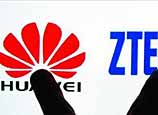
Weibo accounted for 16 percent of Sina's total advertising revenue, which stood at $120.6 million in the third quarter, up from 10 percent in the second quarter, Chao said earlier.
Weibo has been the focus of Sina, which found the growth of its overall advertising business slowing down because the global economic crisis tightened advertisers' spending over the past years.
The service was once seen as a killer product that could save Sina from slowing growth, as evidenced in the company's stock price of $142 in April 2011, compared with its current price of around $55.
Despite being a popular Internet service in China, Weibo has recently triggered investors' concerns on the speed of its monetization, especially after the quick rise of WeChat, a mobile chatting tool developed by Tencent Holdings Ltd, China's biggest Internet company by sales.
Chao said last year that WeChat has put pressure on Weibo because it is taking up an increasing amount of time among its users.
Chinese Internet users spent a total of 5 billion hours on WeChat in October, the most among all social networks, compared with 4.8 billion hours on Weibo, according to figures from Data Center of China Internet, a market research company.
Late last year, Sina restructured its business units to help grow Weibo, especially in the mobile sector, where WeChat sees its users growing significantly.
Launched in January 2011, WeChat, a mobile application like Whatsapp or Line, gathered more than 300 million users in two years. Weibo, which went online in August 2009, had 400 million registered accounts by the end of September.

















 High-profile divorce saga ends
High-profile divorce saga ends


![]()
